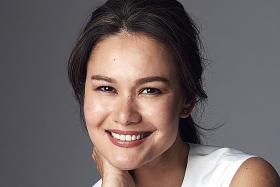Female rocket scientist wants gender bias to stop
Dr Bidushi Bhattacharya, 53, once had a white board marker snatched from her hand by a male colleague as he corrected her during her own presentation.
In the same year, she found out she was paid 30 per cent less than a male colleague, who worked in the same role on the same project.
Dr Bhattacharya, a rocket scientist who used to work with the US National Aeronautics and Space Administration (Nasa), said such incidents, while frustrating, gave her "more energy" to counter "these people who underestimated me".
She went on to work on prominent Nasa projects such as the Hubble Space Telescope, the Mars Rover Programme and the Galileo Mission to Jupiter at Nasa's Jet Propulsion Lab.
She said she related to the subjects of the biographical movie Hidden Figures, which opens here tomorrow.
"I feel like we are underestimated a lot as women in this industry, so I can really identify with the characters of the movie," she told The New Paper.
The movie is about three real-life female African-American mathematicians who overcame racial and gender bias while working in Nasa six decades ago.
Two and a half decades after she first entered the space industry, Dr Bhattacharya, who has UK and US citizenship, set up two start-ups in Singapore after her family moved here in 2014, when her husband was offered the position of director at the Teaching and Learning Centre in Yale-NUS.
Visitors to the ArtScience Museum's NASA: A Human Adventure exhibition can see space artefacts featured in the movie until March 19.
Dr Bhattacharya spoke at the Conversations: Dream Space dialogue session as part of the exhibition's opening weekend last November.
She set up Bhattacharya Space Enterprises in April 2015 to educate and train aspiring space leaders here.
She said: "Boys need to be exposed to working alongside all sorts of people so they won't grow up feeling uncomfortable about having capable female leaders in their midst."
She set up Astropreneurs Hub last month, South-east Asia's first space technology incubator to facilitate satellite launches to the International Space Station.
"Space research makes you realise how vast the universe is and how much we still don't know about it," she said.
Dr Bhattacharya wants to ensure history will not repeat itself for young women and men.
She said: "Diversity is needed for innovation, so as long as you practice systematic exclusion, innovation will always be limited."
Get The New Paper on your phone with the free TNP app. Download from the Apple App Store or Google Play Store now


